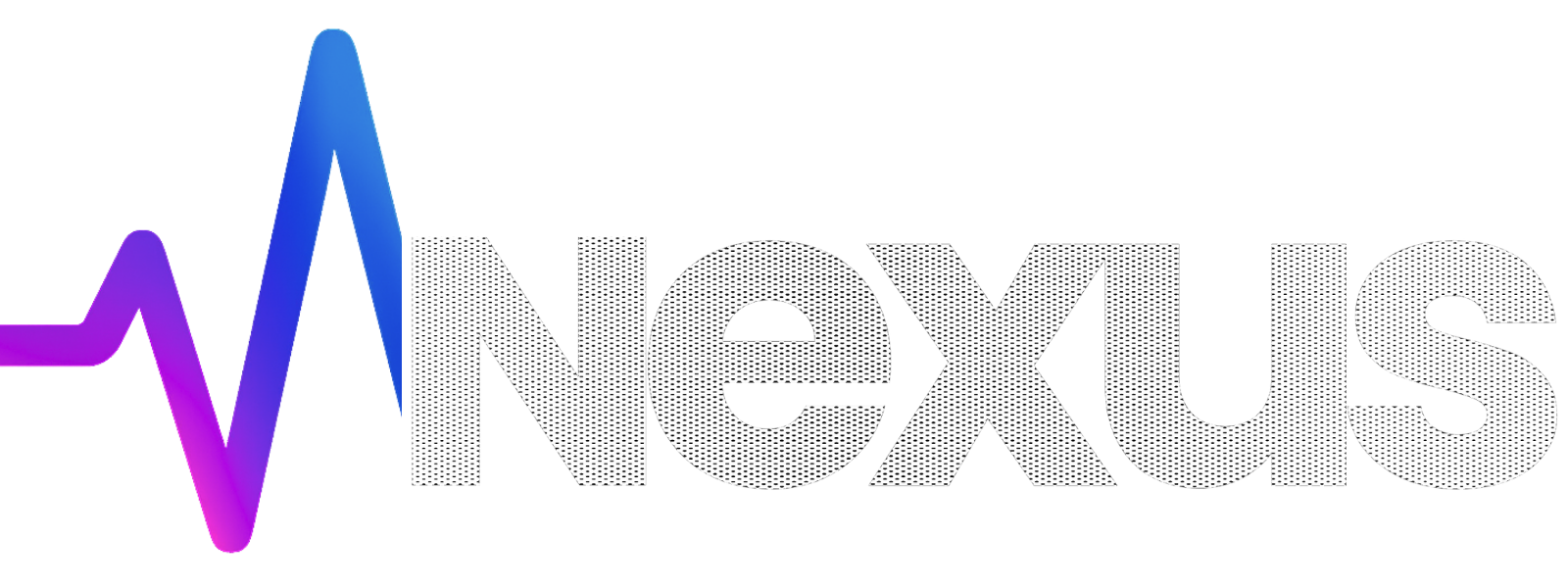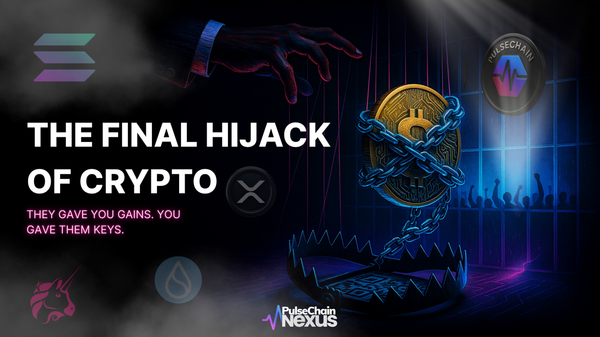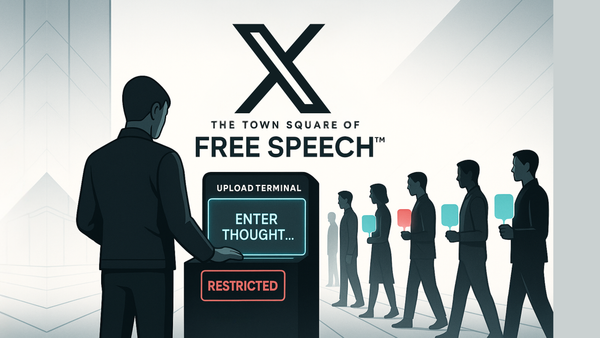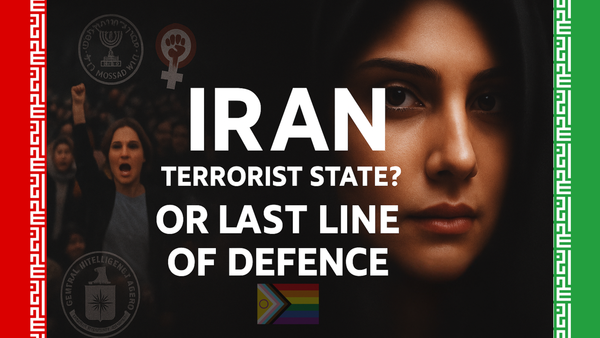Speed vs Sovereignty: Breaking Down Solana and Why PulseChain Is the Last Line of Defense
Crypto wasn’t born to be convenient. It was born to be sovereign. It was built to eliminate the need for trust—not shift it from a bank to a developer. And that’s where the line must be drawn
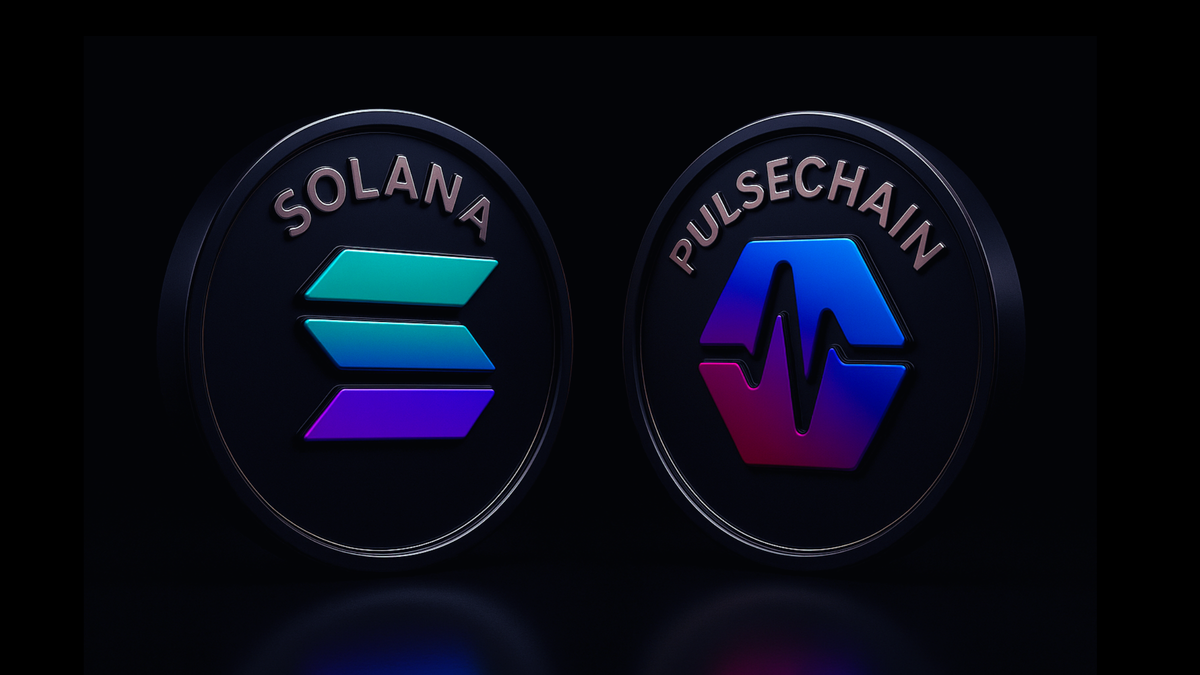
The Illusion of Progress in a Compromised World
In a world where centralized control tightens its grip with every "upgrade," we must ask: what does progress really look like?
The systems that claim to liberate us are often the same ones that quietly demand our submission. Tech empires sell us innovation while locking us into invisible cages. Banks reinvent themselves as digital apps while still owning the rails. Governments promise privacy while expanding surveillance. And in crypto—our so-called last frontier of freedom—the same story plays out again and again.
Projects launch with revolutionary slogans but quickly sell out to venture capital. Chains claim to be decentralized while being run by a handful of validators behind closed doors. The more speed they promise, the more they seem to ask us to trade away the very thing crypto was built for: trustlessness.
Crypto wasn’t born to be convenient. It was born to be sovereign. It was built to eliminate the need for trust—not shift it from a bank to a developer.
And that’s where the line must be drawn.
The Rise and Compromise of Solana
Solana is fast. We’ll give it that. Blazing fast.
But speed without sovereignty is just another ride on the old rails—with better branding.
Behind Solana’s performance lies a deeply centralized architecture:
A handful of validators hold 33%+ of the stake. That means if just 19 of them collude, they can halt the network.
Validators require server-grade hardware costing thousands monthly, pushing out grassroots participation.
The Solana Foundation itself holds massive amounts of SOL, and past upgrades—including chain halts and bug patches—have been coordinated behind the scenes with little community say.
Transactions on Solana aren’t truly final until they’re finalized—and pre-finalization, they can be reversed or forked out.
The chain has already been halted multiple times, and in each instance, validators were told what to do, when to restart, and what code to run.
So yes—it runs fast. But at what cost?
Speed means nothing if it can be frozen. Performance is a mirage when decentralization is an illusion.
Enter PulseChain: The Sovereign Alternative
PulseChain isn’t trying to impress Wall Street. It’s not VC-funded. It’s not built for hedge funds.
It’s built for you.
Born from the Ethereum codebase, PulseChain is a fully EVM-compatible Layer 1 blockchain with a core principle: immutability over convenience.
Here’s what sets PulseChain apart:
Over 48,000+ validators, many run by everyday users—not datacenter elites.
Cheap hardware requirements. You don’t need to be rich to run a node.
No chain halts. No rollbacks. Not once since launch.
Immutable smart contracts. No dev backdoors. Code is law.
No venture capital. No shadowy insiders. Just a sacrifice set and an Origin Address that hasn’t dumped.
A thriving community running the show—not a central foundation pulling strings.
PulseChain doesn’t need to freeze your funds to fix a bug. It doesn’t need 19 validators in a Discord server deciding your future. It doesn’t reboot reality every time something inconvenient happens.
This is what crypto is supposed to be.
Why It Matters Now
Solana and chains like it are attractive. High throughput. Clean UX. Slick partnerships.
But when the system breaks, you’ll find out who really has control.
And that’s the bet you’re making.
In an age of programmable CBDCs, financial censorship, and social credit experiments, the chains we align with are not just technical choices—they're philosophical ones.
Are you here to make a quick trade—or to stand for something?
PulseChain doesn’t just run code. It runs without compromise. It doesn’t beg for adoption. It earns it.
We’re not saying PulseChain is perfect. We’re saying it’s principled.
Conclusion: The New Divide
The next bull run won’t just be about price. It’ll be about principles.
Chains like Solana will rise—and may fall—chasing speed at all costs.
But those of us who remember why crypto was created in the first place will be building somewhere else. Somewhere sovereign.
That place is PulseChain.
The decision is yours.
Speed… or sovereignty?
